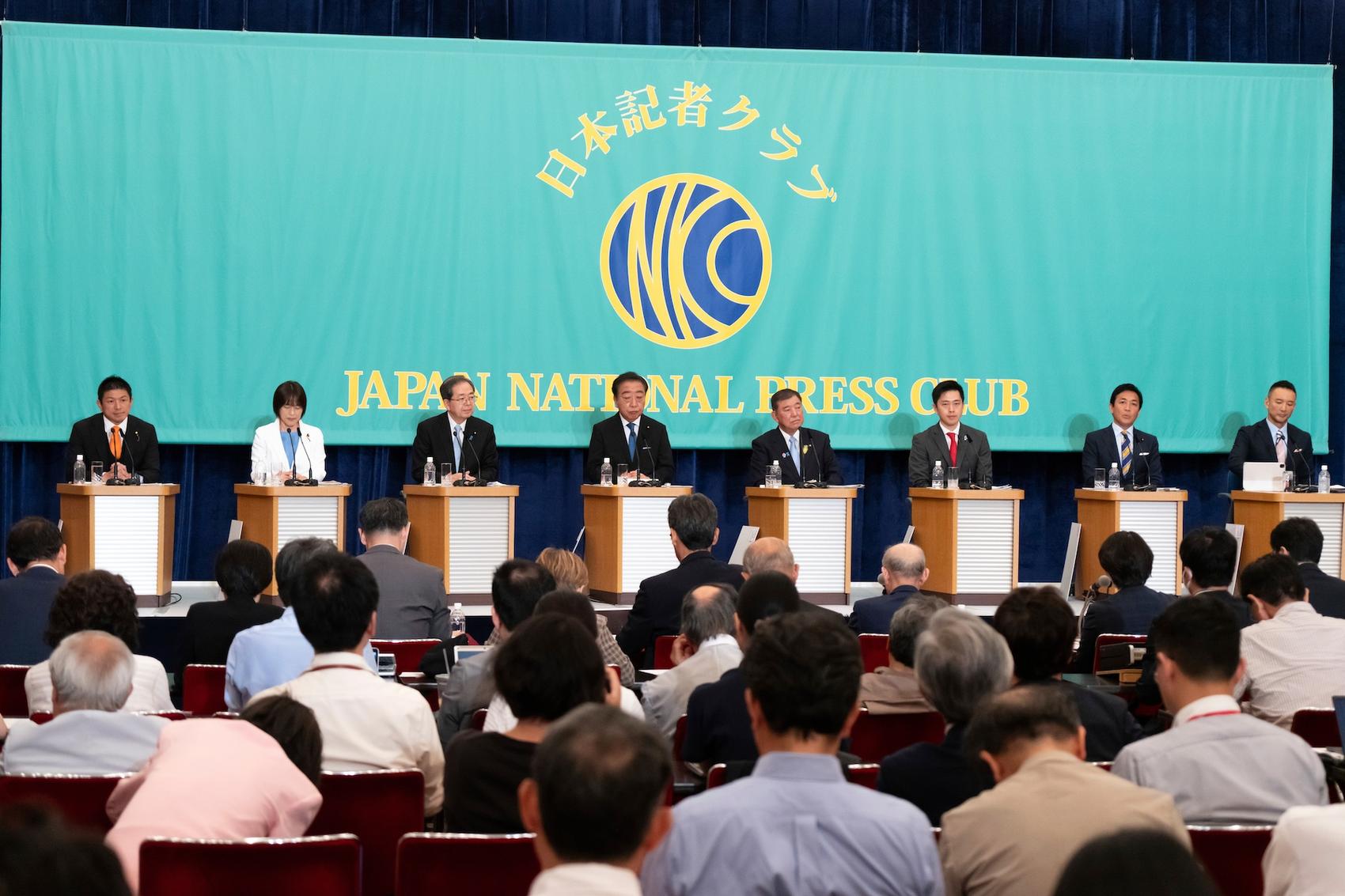By Japan Today Editor Prime Minister Shigeru
Japan’s major political parties are offering their visions for Japan in the decades ahead as they prepare for an upper house election, outlining ambitious targets, but with few details for voters to parse.
The ruling Liberal Democratic Party, led by Prime Minister Shigeru Ishiba, seeks to boost the size of Japan’s economy to 1,000 trillion yen by 2040 from around 600 trillion yen last year.
The economy would have to grow at over 3 percent every year to achieve that goal, faster than the less than 2 percent seen in the past ten years. The government’s 600 trillion yen nominal gross domestic product goal, set about a decade ago, was only recently achieved.
The LDP, which is desperate to retain majority control of the 248-member House of Councillors with its junior coalition partner, the Komeito party, has also vowed to boost incomes by 3 percent on average in nominal terms. It has set a target of each worker earning 1 million yen more by fiscal 2030.
The July 20 election comes at a time of persistent inflation and economic decline, demonstrated most clearly when Japan lost its status as the world’s third-largest economy to Germany in 2023. Demographic challenges, including falling birth rates, cloud the long-term outlook for the country.
The opposition Democratic Party for the People has also set a nominal GDP target of 1,000 trillion yen as an election pledge, but aims to achieve it five years earlier, by 2035, counting on increased investment in growth areas such as artificial intelligence. In a drastic proposal, the party wants mandatory school education to start at age 3 rather than the current 6.
The major opposition Constitutional Democratic Party of Japan does not set a numerical target for the size of the economy, but it promises to revive it from decades of stagnation by revitalizing small and midsize companies and aims to boost confidence in the country’s social security system amid the rapid aging of society.
The Japan Innovation Party, an opposition force that has grown from a regional group with a stronghold in Osaka and nearby areas in western Japan, is advocating its leader’s idea of “multipolar” growth, or focusing on the development of regional blocs aided by decentralization from Tokyo.
Yuichi Kodama, chief economist at the Meiji Yasuda Research Institute, said voters must assess the parties’ plans to achieve their ambitious goals.
“The parties need to show how they will enable the economy to grow. Bold reforms in areas like healthcare, pensions and education are also needed but they are taking a backseat to more appealing, short-term steps like tax cuts and cash handouts.”
